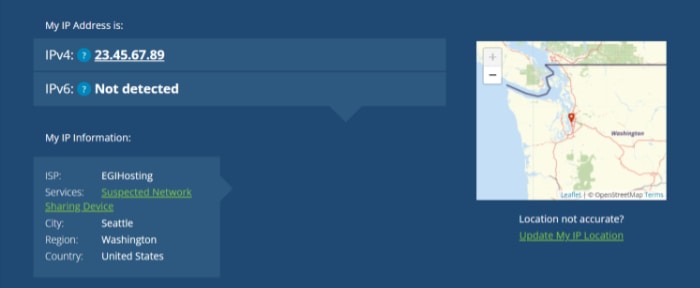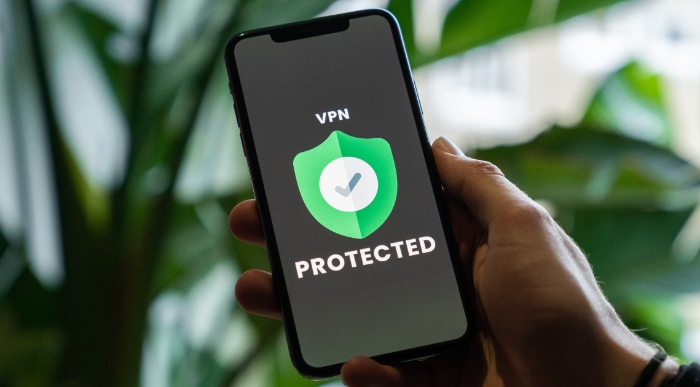How IP Addresses Are Tracked
Rapid technological advancements make it increasingly difficult for people to track which of their data is being shared with third parties.
This is especially concerning in today's day and age where data security issues are on the rise – if your data falls into the wrong hands, it could have serious repercussions.
Given this, we all need to learn about our technologies and find out which data is being tracked by others without our awareness.
In addition, everyone should know about the most basic tools and methodologies through which their private data can be kept secured and untraced.
This issue is exactly what we're here to help you with. So stick with us till the end, and we will teach you some of the most fundamental ways you can secure your sensitive data.
In today's discussion, we will specifically discuss IP addresses – what they are, who tracks them, why they are bad, and how you can stop them.
What Are IP Addresses?
Let's begin by unpacking what IP addresses are. IP addresses (or internet protocol addresses) are unique alphanumeric “code names” assigned to each device for its identification on the internet – kind of like how each car has its unique license plate or the way each house has a unique address.
These unique addresses help different devices communicate with each other over the internet – when two devices try to communicate with one another, they first have to approve of each other's existence. IP addresses are key to this process because they help these devices recognize one another.
In addition to this, IP addresses help your internet servers know where to send the information that you've requested.
For example, when you visit a website, you send a packet of information that contains the specifications of your request, as well as your IP address and port number.
The server(s) that host the website you are attempting to access then reads this information packet, selects the information that it has to send back to you (as you requested), and uses your IP address to find your device (the place it will send this packet of information to).
This process is analogous to how any product delivery system works. You place your order; you give the seller your contact details and home address, and the seller prepares your order according to your specifications and sends your parcel to the address you specified.
The key thing to note here is that just like the seller of the product you ordered now has your address in their database, the websites you visit (and the servers through which you visit them) now retain your IP address. Your ISP (internet service provider) will also have a record of this information.
Someone who wants to get a hold of your activities online (including your browser history) won't be able to find out about it just by using your IP address. Although, your ISPs do have the ability to access this information since they log their customers' activities for as long as 90 days.
Why Are IP Addresses Tracked?
Marketing Reasons
Analytics of people's online activities is considered gold for marketing departments of companies and advertising agencies in general. These parties can use this data to make millions (or even billions) of dollars for themselves.
So, it is not surprising that they are very interested in tracking and recording this data about you or paying third parties who would do this for them.
Marketing teams track your IP address to find your geolocation, learn about your interests through your search patterns and other data, and then use this data to personalize the content (mainly ads) that you see online.
Legal Reasons
Law and enforcement agencies keep track of what sort of activities occur over the internet. When they find that someone is doing something illegal online, they use the IP address of the device through which the crime is conducted to find out the geolocation of the person(s) committing the crime.
Now, this obviously doesn't guarantee that they'll catch these criminals, but it certainly helps in moving the investigation forward. For this reason, it is in the interest of these institutions to keep track of IP addresses.
It Helps Detect Scams and Other Illegal Activities
Online shops such as eCommerce-based businesses and credit card issuing companies have it in their interests to detect suspicious activities and determine whether the requests that they are receiving are coming from fraudulent sources (i.e., scammers).
One of how this is determined is if these companies receive requests for large orders from an IP address that shows a location that is different from the requestee's registered location.
This two-stage verification, alongside other clever techniques to avoid fraud, is why corporations and agencies are highly interested in tracking people's IP addresses.
What Can People Do With My IP Address?
Many people don't really care who gets a hold of their IP address. This mostly happens because they are not aware of all of the harm that cyber-criminals can do with this single piece of information.
In this section, we will give you a sense of all of the potential harm that online criminals can do to you if they successfully track your IP address. This is to ring some alarm bells inside your head so that you can fully comprehend the gravity of this issue – and act accordingly.
Targeted Ad Spam
Advertisers are becoming smarter by the day. Many marketers have recently begun incorporating monitoring tools into internet publications to mine more and more data about their customers (both current and prospective).
These people log the IP address of your device to offer you tailored advertisements depending on your surfing activity. You may, for instance, search up an article regarding TIG welding and then immediately start noticing ads related to TIG welding appearing on your browser.
Find Out Your Geographical Position
IP addresses can give away which country and city you're in. Once a third party gets a hold of this information, they may also be able to determine your actual home address via web research.
Many house intruders monitor social media in order to determine when homeowners are away.
Stop You From Accessing Specific Services
Data regarding your device's location is not just valuable to prospective burglars but also to many online services. These services use your IP address (and ultimately your device's location) to limit your ability to access and utilize their services.
For instance, YouTube TV only displays local programming from the city where you reside. Netflix identifies the region you are in and only allows access to that country's catalog of TV shows and films; other businesses impose varying prices based on the location of their customers.
Block You Out From Playing Certain Online Games
as crazy as it sounds, there are some gamers out there who would get so butt hurt by losing a game to you that they would have your IP address blocked across the web – preventing you from being able to access or play your favorite online games.
Also, this will run the risk of having your account blocked from different games – draining down all of the progress you've made playing these games.
Conduct a DOS or DDoS Attack
Using your device's IP address, hackers may conduct DoS ( or denial of service) cyber assaults against you. Such assaults block your device's access to networking resources, such as websites, online accounts, and private or work email.
The most typical approach for such assaults is to bombard your device's IP address with spam requests; this eventually results in overloading and incapacitating your machine.
DDoS (distributed denial of service) attacks operate in a similar fashion-the onlyexception isthat numerous computers are involved, resulting in an increase in traffic volume.
Get Hold of Your Sensitive Information and Use It to Impersonate You Online
Identity theft is on the rise as data security becomes easier and easier to breach. Online hackers are always in search of your personally identifiable information (or PII) to use this information to steal from you directly or impersonate you while conducting illegal online activities.
This information may include your phone number, postal address, date of birth, and social security number. Hackers can extract this information about you by using your IP address to locate your ISP.
Then, they may conduct a phishing assault to attempt to persuade the ISP to hand up sensitive information they have aboutyou. Investing in one of the top identity theft protection services is a certain approach to avoid such kinds of datatheft.
Use Your Personal Data to Mimic You Online to Frame You for Crimes
Competent hackers can use your IP address to mimic your presence online and conduct illegal activities under your name.
You could get into serious trouble if your data is used to facilitate illegal online activities like purchasing illegal items online.
Other Uses
This list does not cover everything that cybercriminals can do with your sensitive information, but it covers some of the most important ways people can misuse it.
There are a couple of additional ways cybercriminals can abuse your data, like by selling it to other parties or invading your privacy. Still, our discussion will overlook them for now.
How Do I Stop Third Parties From Tracking My IP Address?
Now that you know what the problem is and the different ways it can affect you, let's talk about how you can prevent external parties from tracking your IP Address.
Use a Good VPN Service
VPN is perhaps the most popular tool used to mask IP addresses. A good VPN service will allow you to encrypt your traffic, mask your identity over the web, change your apparent geolocation, and more.
This makes it nearly impossible for hackers or even ISPs (internet service providers) to mine out sensitive data about you and your online activities.
Proxies
Proxies take up the job of masking IP addresses by mediating the signals between people's devices and servers. Using these, you can mislead snoopers about where your search originated from (the geolocation) and, consequently, access restricted data in your region.
Tor
Tor is a free browser attachment that relays your search between several servers (nodes). This makes it extremely difficult for external parties to see what you've searched for on the internet because they have difficulty tracking down where the search originated from.
Summary
Rapid advancements in technology made it harder than ever for the average person to keep up with all of the different ways others may breach their privacy. Still, with more and more of our private information being online nowadays, it has become more important than ever before for us to put in the effort and learn how to secure our data.
IP addresses are unique or alphanumeric “names” given to each of our devices that help online servers know where information was requested from and where they must send back information.
This piece of information is crucial to advertising and Law enforcement agencies because it forwards their purpose.
So, these agencies may trace your IP addresses if the need arises. While this may be harmless, other parties out there can potentially cause you a lot of harm through your IP address, including framing you for cyber-crimes and stealing your virtual identity.
To make your IP address virtually untraceable, make sure you use one of these three tools (or methods) to safeguard your data on the internet:
- Tor
- VPNs
- Proxies






